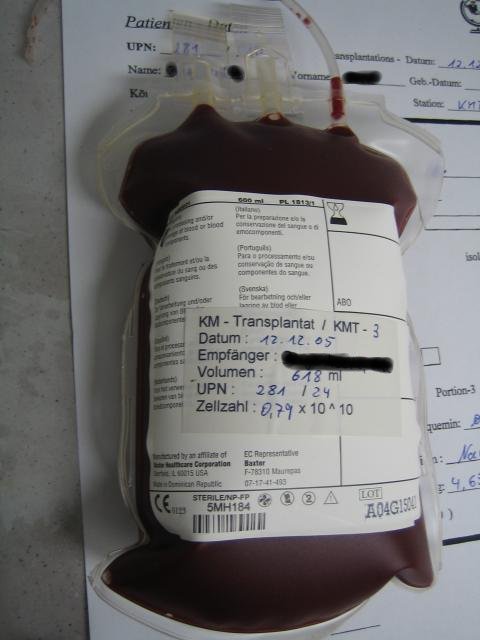Nezelof syndrome on:
[Wikipedia]
[Google]
[Amazon]
Nezelof syndrome is an
 The diagnosis of Nezelof syndrome will indicate a deficiency of
The diagnosis of Nezelof syndrome will indicate a deficiency of
 In terms of treatment for individuals with Nezelof syndrome, which was first characterized in 1964, includes the following(how effective bone marrow transplant is uncertain) :
*
In terms of treatment for individuals with Nezelof syndrome, which was first characterized in 1964, includes the following(how effective bone marrow transplant is uncertain) :
*
PubMed
{{Medicine Immunodeficiency Noninfectious immunodeficiency-related cutaneous conditions Autosomal recessive disorders
autosomal
An autosome is any chromosome that is not a sex chromosome. The members of an autosome pair in a diploid cell have the same morphology, unlike those in allosomal (sex chromosome) pairs, which may have different structures. The DNA in autosom ...
recessive
In genetics, dominance is the phenomenon of one variant (allele) of a gene on a chromosome masking or overriding the effect of a different variant of the same gene on the other copy of the chromosome. The first variant is termed dominant and t ...
congenital immunodeficiency condition due to underdevelopment of the thymus
The thymus is a specialized primary lymphoid organ of the immune system. Within the thymus, thymus cell lymphocytes or ''T cells'' mature. T cells are critical to the adaptive immune system, where the body adapts to specific foreign invaders. ...
. The defect is a type of purine nucleoside phosphorylase deficiency with inactive phosphorylase, this results in an accumulation of deoxy-GTP which inhibits ribonucleotide reductase. Ribonucleotide reductase catalyzes the formation of deoxyribonucleotides from ribonucleotides
In biochemistry, a ribonucleotide is a nucleotide containing ribose as its pentose component. It is considered a molecular precursor of nucleic acids. Nucleotides are the basic building blocks of DNA and RNA. Ribonucleotides themselves are basic ...
, thus, DNA replication is inhibited.
Symptoms and signs
This condition causes severe infections. it is characterized by elevated immunoglobulins that function poorly. Other symptoms are: * Bronchiectasis *Hepatosplenomegaly
Hepatosplenomegaly (commonly abbreviated HSM) is the simultaneous enlargement of both the liver (hepatomegaly) and the spleen (splenomegaly). Hepatosplenomegaly can occur as the result of acute viral hepatitis, infectious mononucleosis, and his ...
* Pyoderma
Pyoderma means any skin disease that is pyogenic (has pus). These include superficial bacterial infections such as impetigo, impetigo contagiosa, ecthyma, folliculitis, Bockhart's impetigo, furuncle, carbuncle, tropical ulcer, etc.Page 348 in: Au ...
* Emphysema
* Diarrhea
Diarrhea, also spelled diarrhoea, is the condition of having at least three loose, liquid, or watery bowel movements each day. It often lasts for a few days and can result in dehydration due to fluid loss. Signs of dehydration often begin w ...
Cause
Genetically speaking, Nezelof syndrome is autosomal recessive. the condition is thought to be a variation ofsevere combined immunodeficiency
Severe combined immunodeficiency (SCID), also known as Swiss-type agammaglobulinemia, is a rare genetic disorder characterized by the disturbed development of functional T cells and B cells caused by numerous genetic mutations that result in diffe ...
(SCID). However, the precise cause of Nezelof syndrome remains uncertain
Mechanism
In the mechanism of this condition, one first finds that the normal function of thethymus
The thymus is a specialized primary lymphoid organ of the immune system. Within the thymus, thymus cell lymphocytes or ''T cells'' mature. T cells are critical to the adaptive immune system, where the body adapts to specific foreign invaders. ...
has it being important in T-cell development and release into the body's blood circulation
The blood circulatory system is a system of organs that includes the heart, blood vessels, and blood which is circulated throughout the entire body of a human or other vertebrate. It includes the cardiovascular system, or vascular system, tha ...
Hassal's corpuscles absence in thymus(atrophy) has an effect on T-cells.
Diagnosis
 The diagnosis of Nezelof syndrome will indicate a deficiency of
The diagnosis of Nezelof syndrome will indicate a deficiency of T-cells
A T cell is a type of lymphocyte. T cells are one of the important white blood cells of the immune system and play a central role in the adaptive immune response. T cells can be distinguished from other lymphocytes by the presence of a T-cell r ...
, additionally in ascertaining the condition the following is done:
::::::::::* Blood test ( B-cells will be normal)
::::::::::*X-ray of thymus
The thymus is a specialized primary lymphoid organ of the immune system. Within the thymus, thymus cell lymphocytes or ''T cells'' mature. T cells are critical to the adaptive immune system, where the body adapts to specific foreign invaders. ...
(atrophy present)
Differential diagnosis
The differential diagnosis for this condition consists of acquired immune deficiency syndrome and severe combined immunodeficiency syndromeTreatment
Antimicrobial
An antimicrobial is an agent that kills microorganisms or stops their growth. Antimicrobial medicines can be grouped according to the microorganisms they act primarily against. For example, antibiotics are used against bacteria, and antifungals ar ...
therapy
* IV immunoglobulin
* Bone marrow transplantation
Hematopoietic stem-cell transplantation (HSCT) is the transplantation of multipotent hematopoietic stem cells, usually derived from bone marrow, peripheral blood, or umbilical cord blood in order to replicate inside of a patient and to produce ...
* Thymus transplantation
* Thymus
The thymus is a specialized primary lymphoid organ of the immune system. Within the thymus, thymus cell lymphocytes or ''T cells'' mature. T cells are critical to the adaptive immune system, where the body adapts to specific foreign invaders. ...
factors
See also
*List of radiographic findings associated with cutaneous conditions
Many conditions of or affecting the human integumentary system have associated features that may be found by performing an x-ray or CT scan of the affected person.
See also
* List of cutaneous conditions
* List of contact allergens
* List o ...
References
Further reading
*External links
PubMed
{{Medicine Immunodeficiency Noninfectious immunodeficiency-related cutaneous conditions Autosomal recessive disorders